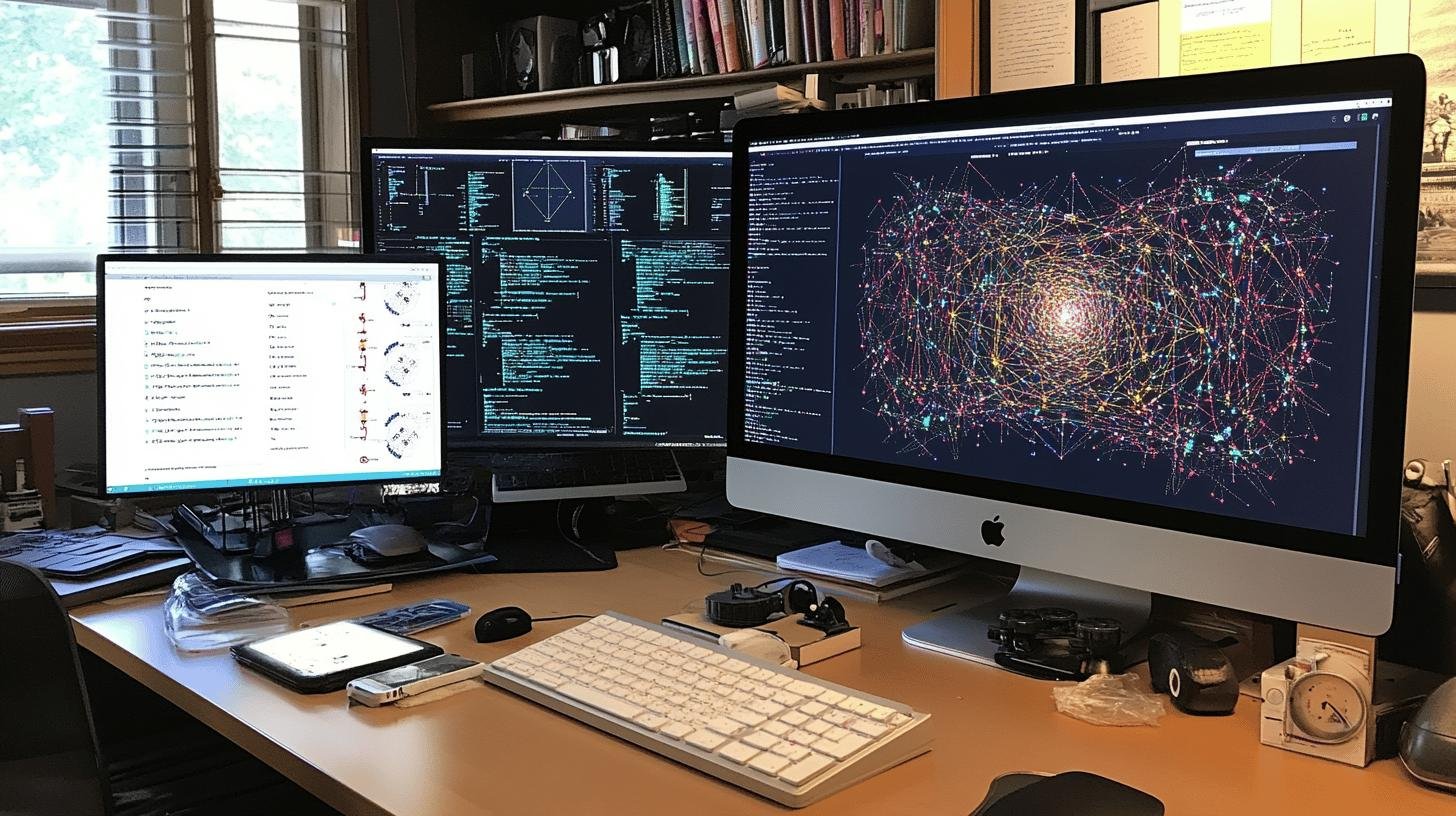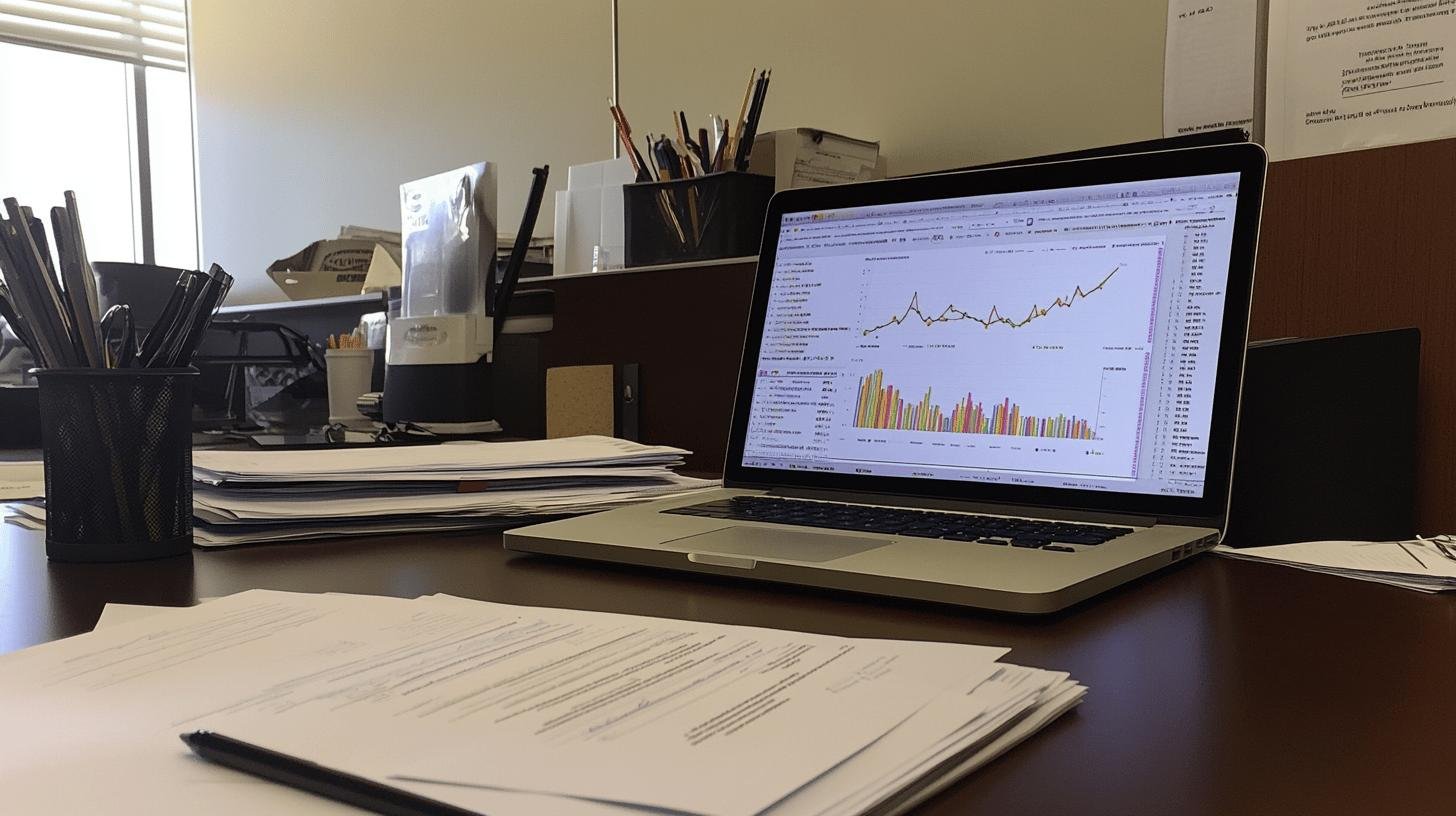How does AI improve accuracy? Ever wonder how AI’s making everything sharper, from your morning health scan to your bank transactions? It’s like AI’s giving industries a pair of super-powered glasses, making sure nothing slips through the cracks. Dive into the tech world where AI’s not just about robots taking over but making industries—from healthcare to finance—smarter and more precise. Ready to see how those sci-fi algorithms are reshaping the way we define accuracy? Let’s break it down and see how AI is turning precision from a buzzword into reality across the board!
How AI Enhances Accuracy in Various Industries
First, how does AI improve accuracy? AI acts like a top-notch detective, finding clues and patterns in huge data sets that might slip by humans. It sifts through these vast amounts of data to hone accuracy. Imagine searching for a needle in a haystack, but AI is like a super-magnet that makes it easy. This ability helps AI make predictions and decisions with remarkable precision.
Let’s explore some examples of AI in action. In healthcare, AI transforms diagnostics by analyzing medical images to detect diseases early, even before signs appear. In finance, AI is a watchdog for fraud, identifying strange transaction patterns hinting at foul play. In manufacturing, AI monitors quality control, spotting defects quicker than “Oops!”
Here’s a quick look at AI techniques making impacts:
- Pattern recognition in healthcare imaging.
- Fraud detection algorithms in finance.
- Predictive maintenance in manufacturing.
- Natural language processing for customer service.
- Data validation for reducing errors.
For business owners, AI-driven accuracy is crucial. It improves efficiency and aids smarter choices, saving time and money. Imagine a reliable sidekick helping everything run smoothly, from diagnosing illnesses to stopping fraud and ensuring top-tier product quality. AI’s precision can significantly enhance a business.
Mechanisms Behind AI-Driven Accuracy

Have you wondered and asked, How does AI improve accuracy? It’s like a crystal ball predicting the future impressively well. Let’s discuss machine learning. This tech uses past data to forecast results. Imagine teaching a robot about cats by showing it thousands of pictures. It soon spots a cat quicker than you can say “furball!” Machine learning refines predictions, ensuring decisions are accurate.
Moving to neural networks and data processing, neural networks act like digital brains. They take in loads of info and determine the best decision, like choosing between pizza and salad for dinner (tough call!). Data processing is the unsung hero, analyzing large datasets with ease and ensuring the data fed into AI systems is clean and ready. This combo enhances AI’s decision-making precision.
Benefits and Challenges of AI-Driven Accuracy
Further look into the digest, how does AI improve accuracy? You should know this, AI serves as a superhero for boosting accuracy. AI-driven insights reduce errors, like a smart assistant spotting mistakes before they happen. It smooths decision-making like a perfect GPS. By analyzing tons of data, AI helps businesses, even small businesses, decide on the best routes, saving time and money. It’s like having a crystal ball showing the future.
But it’s not without challenges. Data quality is essential. If input data is poor, results might be too. It’s like baking with poor ingredients. Then there’s potential bias. AI might absorb human biases from data, skewing results. Ethical concerns about AI decisions also arise, making human oversight vital to ensure AI plays fair.
AI’s Role in Improving Decision-Making

How does AI improve accuracy in decision-making? AI tools provide real-time insights supporting strategic planning. These tools process data faster than you can say “spreadsheet.” It’s like a magic mirror giving detailed market trend reports. Businesses tweak strategies on the fly, always staying a step ahead thanks to AI’s insights.
Consider data-driven business decisions. AI uses vast data to guide business strategies. Imagine heaps of data like sales numbers and feedback. AI is like a super detective piecing this data puzzle together to guide strategies. This means decisions are fact-based, not gut feelings. It’s like a GPS charting the best path to success.
AI tools for decision-making:
- Real-time data analytics platforms.
- Predictive modeling software.
- Business intelligence tools.
- Cognitive computing systems.
Real-World Examples of AI Accuracy Improvements
How does AI improve accuracy and boost healthcare diagnostics? AI analyzes medical images precisely and quickly, detecting diseases like cancer earlier. It acts like a digital magnifying glass, helping doctors spot changes that might go unnoticed. Patients then start treatment sooner, improving recovery chances. AI is a super detective in healthcare, catching diseases early.
In logistics, AI optimizes planning and inventory like pros. It checks traffic patterns to find the fastest paths, saving time and fuel. AI ensures packages take the best route, speeding delivery. In inventory, AI predicts stock needs, preventing overstock or shortages. It’s like the ultimate traffic cop and stock manager in one.
AI solutions across industries:
- AI in healthcare for disease detection.
- AI in logistics for route planning.
- AI in retail for behavior analysis.
- AI in finance for risk assessment.
- AI in manufacturing for quality control.
These AI applications enhance business efficiency. In retail, AI analyzes behavior to tailor marketing, reaching the right audience. Finance uses AI to assess risks, avoiding costly errors. Manufacturing uses AI to spot defects early, maintaining quality. Every department has a smart assistant ensuring smooth operations.
Conclusion
As far as it comes to AI, it is an improvement across industries. This content helped to answer the question, How does AI improve accuracy?
From nailing diagnostics in healthcare to spotting sneaky fraud in finance, AI shines bright. It’s all about making those big data sets work for us in ways we can’t do solo.
Toss in some neural networks and smart data processing, and we’ve got accuracy that keeps things running smoother than ever. So, next time you are pondering, “How does AI improve accuracy?” think of those precision-driven changes making life a tad easier and way more efficient.
FAQ
How accurate is AI prediction?
AI prediction accuracy varies by sector. It excels in processing vast data to spot patterns, boosting precision in finance, healthcare, and manufacturing. Specific use cases reveal impressive results, especially in diagnostics and fraud detection.
How does AI improve accuracy compared to precision?
In AI, accuracy measures how often predictions are correct, while precision focuses on the reliability of those predictions. High precision means fewer false positives. It’s key in fields like medical diagnosis.
Is AI more accurate than humans?
AI often surpasses human accuracy in handling repetitive tasks, analyzing massive datasets, or recognizing patterns quickly. However, human intuition and context understanding can sometimes outweigh AI’s analytical edge.
How accurate is AI in healthcare?
AI in healthcare shows heightened accuracy in diagnostics, like spotting diseases from imaging. It’s crucial for early detection and personalized treatment plans. Yet, clinical expertise remains vital for final decisions.
Does AI give accurate results?
AI typically delivers accurate results by leveraging machine learning to analyze data patterns. Yet, the learning model’s quality and data input directly affect outcome reliability. Regular updates and checks ensure optimal accuracy.




